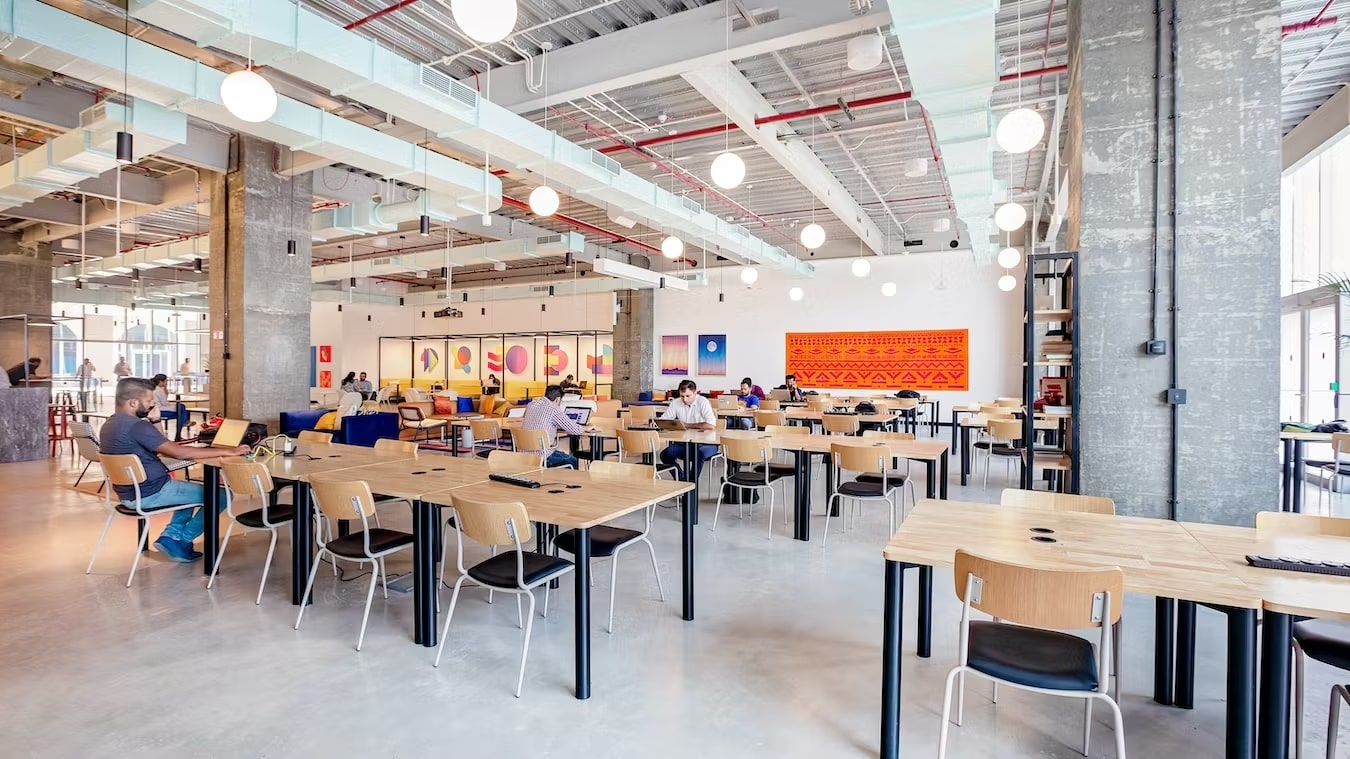Recent data from The Instant Group shows London's flexible workspace market continuing to evolve in response to shifting client preferences, rising demand, and changing landlord sentiments.
With 2023 in the rearview mirror and patterns starting to emerge in 2024, it's evident that the market is responding to a multitude of factors. From shifting client demands to evolving landlord sentiment, below we present what the data is saying about the flex sector in London.
AVERAGE DESK RATES
Across London, desk rates tend to fluctuate based on factors including location, quality, and prevailing market conditions. According to data from The Instant Group, transacted rates remained relatively stable across the UK in 2023, with a slight uptick observed in London compared to the preceding year. However, the performance across different parts of London varied significantly, with coworking spaces experiencing downward pressure on rates.
As of January 2024, the average transacted desk rate in London stands at £514 per month, marking an 8.8% increase from the same period in the previous year. Notably, premium spaces command even higher rates, with certain areas of the city seeing prices soar to £1,170 per desk per month.
OCCUPANCY LEVEL
Demand for flexible workspaces is strengthening, reflected in rising occupancy rates across London. Data from Q1 2024 reveals that the average occupancy of flex space in the city has reached 83%, up from 81% in Q3 2023.
In particular, areas such as Southwark and the City of London boast even higher occupancy rates, currently standing at an impressive 88%, fueled by strong demand for premium providers.
MARKET SENTIMENT: CLIENTS
Following a sluggish end to 2023, clients' demand for flexible workspace solutions rebounded robustly in January 2024. Enquiry volumes surged by 10% compared to the same period in the previous year, indicating a heightened interest in service-focused spaces that facilitate return-to-office strategies and offer long-term cost savings.
A noteworthy trend is the preference for larger requirements, with businesses seeking a combination of private and open-access spaces to accommodate fluctuating demands and company growth. In 2023, over 60% of desk placements stemmed from requirements for over 26 people, underlining the evolving needs of corporate clients.
MARKET SENTIMENT: LANDLORDS
Landlords, the key players in the subletting of flexible spaces in London, exhibit a cautious yet optimistic outlook towards the market. The majority have witnessed a significant uptick in demand for flexible spaces compared to traditional leases over the past year. Notably, over 58% of landlords anticipate that upwards of 26% of their portfolio will transition to a flexible format by 2030, reflecting changing market dynamics.
Despite lingering concerns regarding risk and reward dynamics, landlords are increasingly open to partnerships with operators as a means to enhance cash flow and mitigate perceived risks. With access to growing volumes of data, landlords are better equipped to navigate the complexities of the industry and capitalise on emerging opportunities.
As shown by the data, London's flexible workspace market continues to evolve in response to shifting client preferences, rising demand, and changing landlord sentiments. While navigating through 2024, stakeholders across the spectrum must remain adaptable and forward-thinking to capitalize on the myriad opportunities presented by this dynamic sector.


